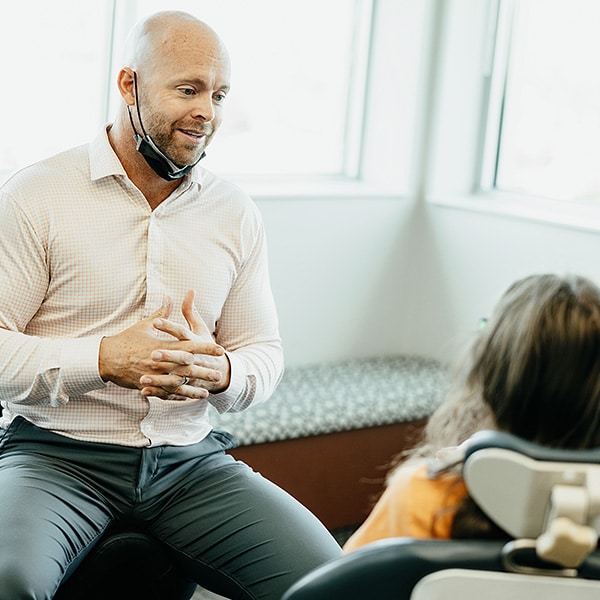
Ceramic Braces: The Perfect Balance of Function and Aesthetics
Ceramic Braces: The Perfect Balance of Function and Aesthetics When it comes to orthodontic treatment, many patients desire effective results without the conspicuous appearance of traditional metal braces. Ceramic braces offer the perfect solution, combining the proven effectiveness of conventional braces with a more aesthetically pleasing appearance. At Total Orthodontics, Dr. Brooks Barefoot, Dr. Kevin Theroux, and Dr.

Your Complete Guide to Teeth Straightening Options
Your Complete Guide to Teeth Straightening Options When it comes to achieving a beautiful, confident smile, understanding your teeth straightening options is the first step toward transformation. At Total Orthodontics, Dr. Brooks Barefoot, Dr. Kevin Theroux, and Dr. Elizabeth Donahue helps patients throughout Lone Tree, Greenwood Village, and the greater Denver area discover the best orthodontic solution for

Retainers After Braces or Aligners: What You Need to Know
Retainers After Braces or Aligners: What You Need to Know You made it through braces or clear aligners—congrats! Now comes the next important step: wearing your retainer. While it might seem like you’re done with orthodontic treatment, retainers after braces or aligners are essential to keeping your new smile in place. In this guide, Dr. Brooks Barefoot, Dr.

Braces for Kids Lunch Edition
Braces for Kids Lunch Edition Does the thought of prepping school lunches day in and day out feel a little overwhelming? We get it. Especially if your child has braces, coming up with a kid-pleasing variety of braces-friendly lunch food ideas can be daunting. When it comes to braces for kids, finding meals that are both tasty and

Your Complete Orthodontic Treatment Timeline
Your Complete Orthodontic Treatment Timeline Are you unhappy with your smile? Do you have trouble eating or talking because of your teeth? You might need orthodontic treatment. Dr. Kevin Theroux, Dr. Brooks Barefoot and Dr. Elizabeth Donahue at Total Orthodontics are dedicated to guiding you every step of the way—from your first orthodontic consultation to your final results.

How Coffee and Tea Affect Your Invisalign Treatment
How Coffee and Tea Affect Your Invisalign Treatment Thinking about getting Invisalign to fix your teeth? You might be worried about your daily coffee or tea habit. Many of us need that morning cup to start our day right. The good news is you don’t have to give up your favorite drinks during Invisalign treatment. But there are
